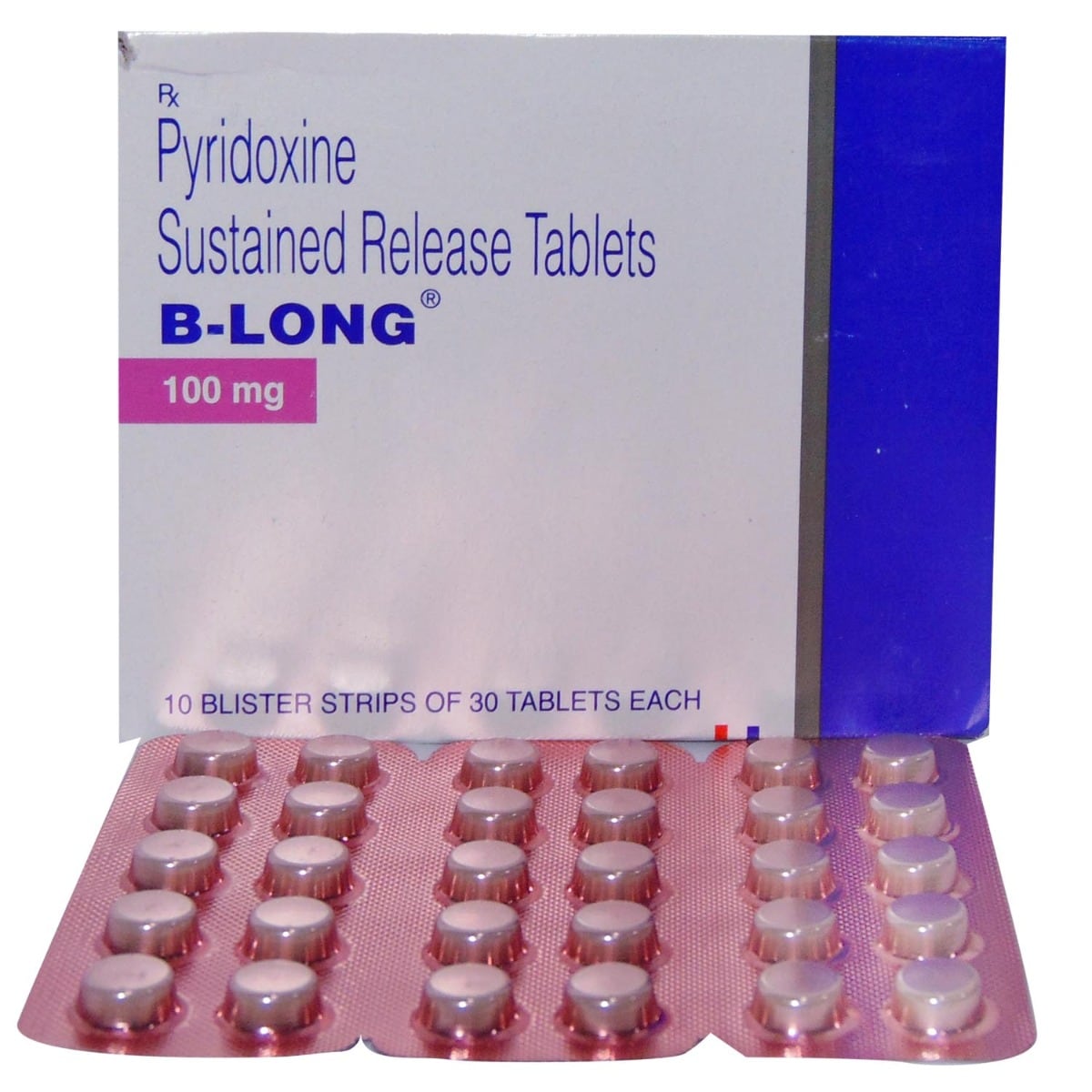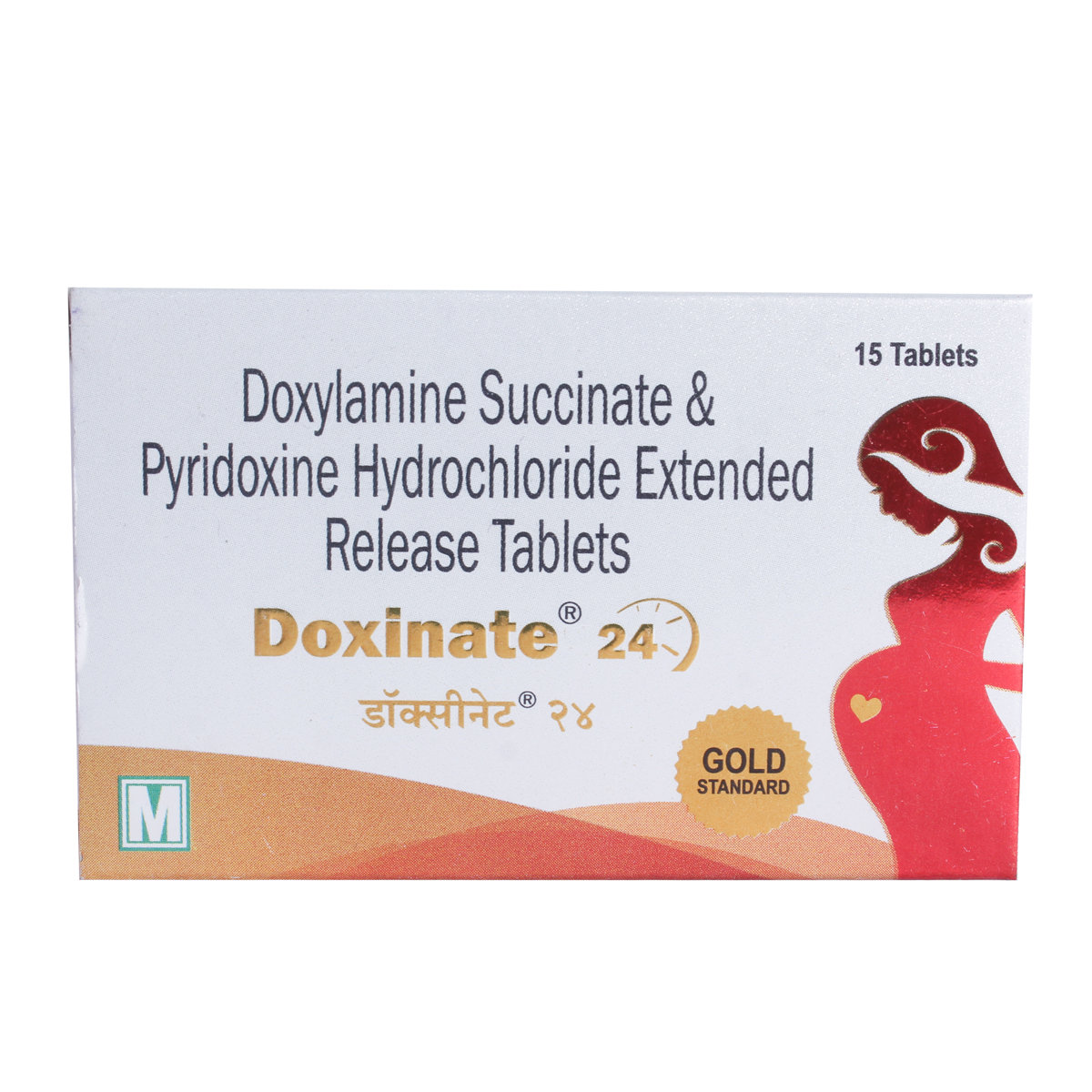Pyridoxine Hydrochloride
About Pyridoxine Hydrochloride
Pyridoxine Hydrochloride is used to treat vitamin B6/pyridoxine hydrochloride deficiency. Vitamin B6 deficiency is caused due to malabsorption, protein-energy undernutrition, certain drugs or alcoholism. The symptoms include cracked and sore lips, skin rashes, glossy tongue, weakened immune function, mood changes, low energy, tiredness, pain and tingling in hands and feet.
Pyridoxine Hydrochloride contains Pyridoxine hydrochloride (salt form of vitamin B6) that restores vitamin B6 in the body and helps to treat its deficiency.
Take Pyridoxine Hydrochloride as advised by the doctor. In some cases, you may experience nausea, drowsiness, headache, mild tingling or numbness. Most of these side effects of Pyridoxine Hydrochloride do not require medical attention and gradually resolve over time. However, if the side effects persist or worsen, please consult your doctor.
If you are allergic to Pyridoxine Hydrochloride or any other medicines, please tell your doctor. Pyridoxine Hydrochloride is not recommended for children below 12 years. If you are pregnant or breastfeeding, please consult a doctor before using Pyridoxine Hydrochloride. You are recommended to avoid alcohol consumption with Pyridoxine Hydrochloride. Inform your doctor if you are taking any vitamins, OTC medicines or herbal products.
Uses of Pyridoxine Hydrochloride
Medicinal Benefits
Pyridoxine Hydrochloride is used to treat vitamin B6 deficiency. It restores vitamin B6 in the body and helps to treat its deficiency. Also, it is used to treat peripheral neuritis (nerve damage) caused by isoniazid (a drug used to treat tuberculosis).
Directions for Use
- Pyridoxine Hydrochloride can be taken with or without food.
- It is recommended to take Pyridoxine Hydrochloride once daily at the same time each day or as advised by your doctor.
- Swallow Pyridoxine Hydrochloride as a whole with a glass of water.
- Do not crush, chew, or break it.
Storage
Side Effects of Pyridoxine Hydrochloride
- Nausea
- Drowsiness
- Headache
- Mild tingling or numbness
Drug Warnings
If you are allergic to Pyridoxine Hydrochloride or any other medicines, please tell your doctor. Pyridoxine Hydrochloride is not recommended for children below 12 years. If you are pregnant or breastfeeding, please consult a doctor before using Pyridoxine Hydrochloride. You are recommended to avoid alcohol consumption with Pyridoxine Hydrochloride. Inform your doctor if you are taking any vitamins, OTC medicines or herbal products.
Drug Interactions
Drug-Drug Interaction: Pyridoxine Hydrochloride may interact with anti-Parkinson drug (levodopa), anti-tubercular drug (isoniazid), antibiotic (cycloserine), drugs used to treat arthritis (penicillamine), a vasodilator (hydralazine), anticonvulsants (phenytoin) and oral contraceptives.
Drug- Food Interaction: No interactions found.
Drug-Disease Interaction: No interactions found.
Drug-Drug Interactions Checker List:
Safety Advice

Alcohol
unsafeAvoid alcohol consumption with Pyridoxine Hydrochloride as it may worsen vitamin B6 deficiency.

Pregnancy
consult your doctorPlease consult a doctor if you are pregnant or planning for pregnancy. Pyridoxine Hydrochloride is given to pregnant women if the doctor thinks the benefits outweigh the risks.

Breast Feeding
consult your doctorPlease consult a doctor if you are breastfeeding. Pyridoxine Hydrochloride is given to breastfeeding women if the doctor thinks the benefits outweigh the risks.

Driving
safe if suggestedPyridoxine Hydrochloride usually does not affect your ability to drive or operate machinery.

Liver
cautionTake Pyridoxine Hydrochloride with caution, especially if you have a history of Liver diseases/conditions. The dose may be adjusted by your doctor as required.

Kidney
cautionTake Pyridoxine Hydrochloride with caution, especially if you have a history of Kidney diseases/conditions. The dose may be adjusted by your doctor as required.

Children
unsafePyridoxine Hydrochloride is not recommended for children below 12 years as the safety and effectiveness were not established.
Habit Forming
Diet & Lifestyle Advise
- Eat foods rich in vitamin B6, such as salmon, chickpeas, poultry, fortified cereals, tuna and beef liver.
- Include fruits and vegetables such as dark leafy greens, oranges, papayas and cantaloupe in the diet.
- Limit junk food items from outside and stick to freshly prepared home-cooked meals.
- Drink plenty of fluids to stay hydrated.
- Avoid consumption of alcohol.
Patients Concern
Disease/Condition Glossary
Vitamin B6 deficiency: It is caused due to malabsorption, protein-energy undernutrition, certain drugs or alcoholism. The symptoms include cracked and sore lips, skin rashes, glossy tongue, weakened immune function, mood changes, low energy, tiredness, pain and tingling in hands and feet. Vitamin B6 deficiency causes peripheral neuropathy and seizures (fits). To avoid this deficiency, it is advised to eat a variety of vegetables, fruits, meats, fish and nuts.
FAQs
Pyridoxine Hydrochloride is used to treat vitamin B6/pyridoxine hydrochloride deficiency.
Pyridoxine Hydrochloride contains Pyridoxine hydrochloride (salt form of vitamin B6) that restores vitamin B6 in the body and helps to treat its deficiency.
Pyridoxine Hydrochloride may cause nausea as a temporary side effect. It is not necessary for everyone taking Pyridoxine Hydrochloride to experience this side effect. However, if the condition persists or worsens, please consult a doctor.
You are not recommended to take Pyridoxine Hydrochloride with phenytoin as co-administration of these two medicines may reduce the effectiveness of phenytoin. However, if you are supposed to use these medicines together, please consult a doctor so that the dose may be adjusted appropriately to use safely.
You are not recommended to stop taking Pyridoxine Hydrochloride without consulting your doctor as it may worsen the condition. Therefore, take Pyridoxine Hydrochloride for as long as your doctor has advised it, and if you experience any difficulty while taking Pyridoxine Hydrochloride, please consult your doctor.
Pyridoxine Hydrochloride contains Pyridoxine Hydrochloride.
Pyridoxine Hydrochloride contains Pyridoxine Hydrochloride, a vitamin B6 supplement. It falls under the category of vitamins and minerals.
No, Pyridoxine Hydrochloride (vitamin B6) does not directly promote sleep.
Yes, you can take Pyridoxine Hydrochloride before bedtime. It will not interrupt your sleep. However, if you have special health issues or are taking other medications, it is always advisable to consult with a healthcare expert. They can offer unique guidance based on your specific scenario.











